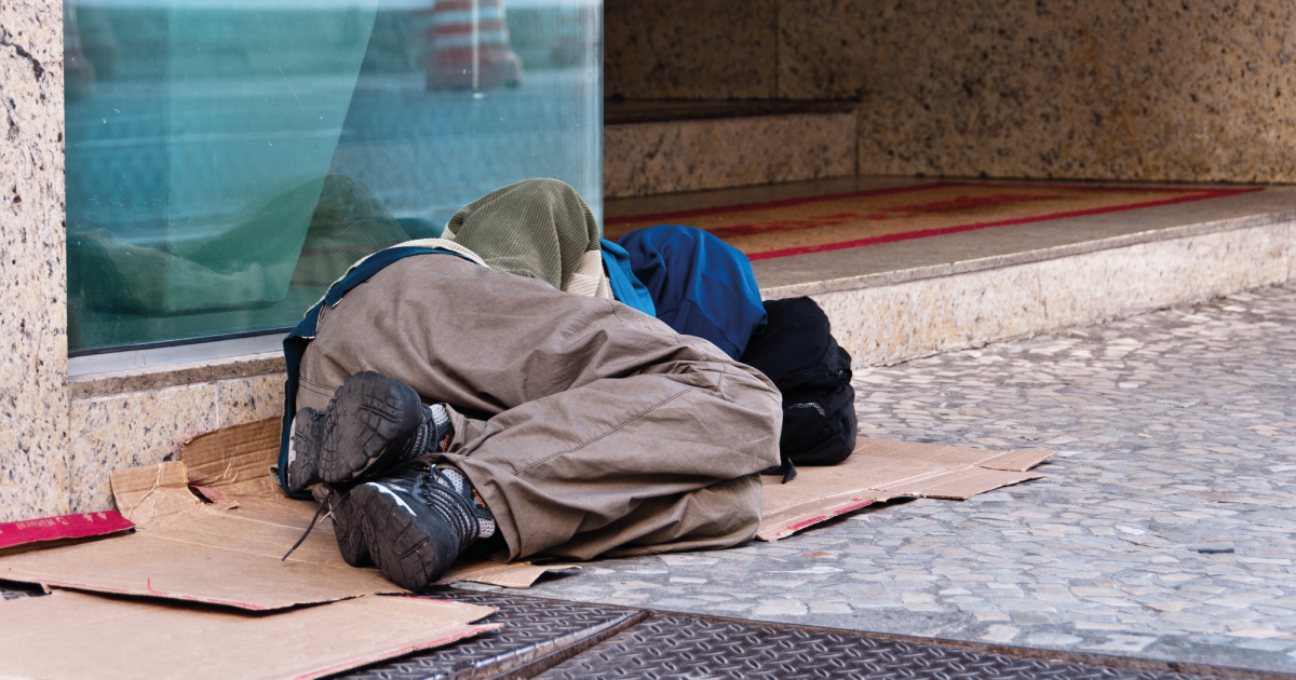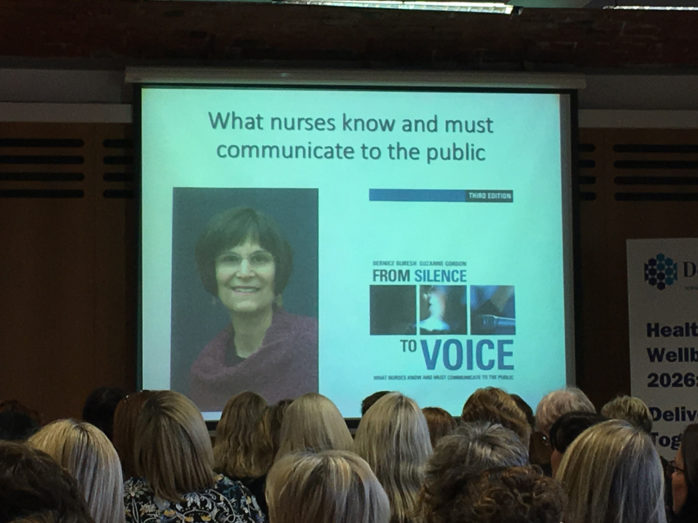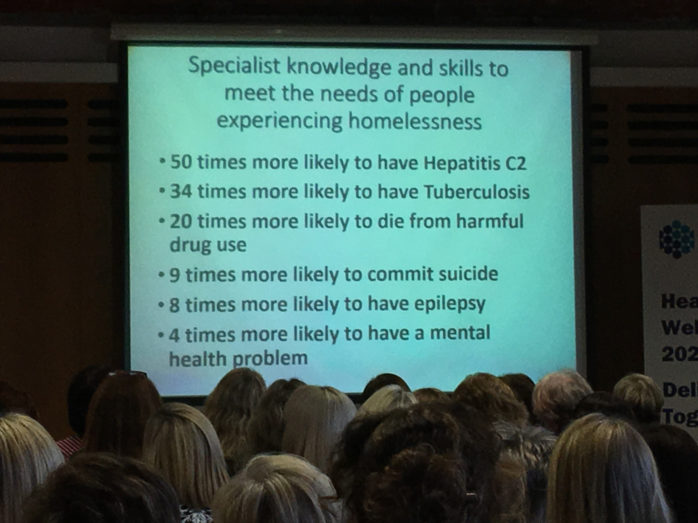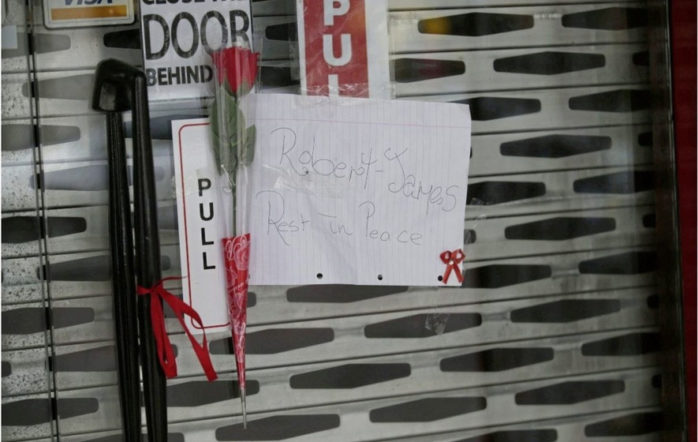
By Jim Dennison, CEO, Simon Community NI
"Social injustice is killing on a grand scale."
Sir Michael Marmot – Professor of Epidemiology & Public Health at University College London
Another homeless death on streets of Belfast comes in wake of new NI nursing campaign launched to tackle homelessness and health inequalities.

Earlier this month, I was lucky enough to be invited to the launch of Nursing Now’s new campaign, which pledged a focus on homelessness and health inequalities in Northern Ireland. With key speakers that included Professor Sir Michael Marmot, Dr Barbara Stilwell, Dr Christina Oldman as well as NI’s Chief Nursing Officer, Professor Charlotte McArdle, the informative discussions that took place pressed on the importance of healthcare in ending homelessness and the need for partnerships with service providers to share best practice.
Less than 24hours after the conference, Robbie was found dead in Belfast City Centre – a young man in his thirties. Someone’s son, someone’s friend and another victim of homelessness. A shocking accident? Sadly not. The reality of homelessness is one with a male average lifespan of 47yrs – a statistic that surprised attendees at the Nursing Now conference.
Robbie’s death delivered with it a sense of déjà vu – the same public outcry, ideas for using derelict buildings and the blaming of authorities that I witnessed back in March 2016 in the aftermath of the unfortunate death of Catherine, a woman who was homeless in Belfast City Centre. A death that prompted the homelessness sector – led by Simon Community NI – to organise a homelessness summit and deliver key recommendations to tackle the crisis and reduce deaths. Recommendations largely ignored by the powers that be!
Drawing on the previous learning from Catherine’s death, alongside discussion points from the Nursing Now conference, two things from Robbie’s unfortunate passing have stuck in my mind.

1.Homelessness Discourse: many are still getting it wrong
Less than 24hrs before Robbie’s death, the Chief Executive of the Queen's Nursing Institute, Dr Oldman spoke to a room full of nurses detailing health and homelessness statistics: “It’s more important to know what sort of person has an illness than what sort of illness a person has.” This was a piece later strengthened by the Belfast Trust speakers who commented on the fact that homelessness is about more than having no home.
However, fast forward a day and the primary quote delivered to media suggested that individuals ‘choose’ to sleep on the street to take drugs and alcohol. Already, and before a post mortem had been carried out, the discourse ignored the individual and focused on ‘choice’ and consequences. Thankfully, a simple scroll through social media commentary highlighted the overall positive attitude of the public towards the unfortunate, and preventable, death of Robbie.
Sadly, the truth is that Robbie is not alone. In fact, between October 2017 and the end of August 2018 there were 148 people in Northern Ireland who had their housing applications closed due to death. These are individuals who may have died from ill health, from suicide, from drug overdoses and so on – people who rarely make the news because they didn’t die on the streets of Northern Ireland.
2.Short Term Solutions: an expensive placebo
At the Nursing Now conference, Dr Stilwell made an important comment: “through working at a homeless clinic, I was able to see that giving someone who is homeless antibiotics meant nothing if you didn’t understand the conditions that made them ill.” Juxtaposed to this was the popular conversation that materialised on social media and radio in the wake of Robbie’s death - a call for empty buildings to be opened for rough sleepers alongside tents and heating lamps placed on the grounds of Belfast City Hall.
Whilst all nice ideas, these suggestions ignore the fact that it is not the City Council’s responsibility to house those who are homeless and such ideas only provide short term solutions to a much bigger crisis that is impacting the health and mental wellbeing of thousands of people here.
A better approach, which was touched upon by some calling for charities to be given money to respond to severe weather scenarios, would be to take Dr Stilwell’s viewpoint into consideration and apply it to homelessness i.e. understanding and responding to the triggers of homelessness.
For example, speaking for Simon Community NI, the reintroduction of our 5% Supporting People funding that was taken would reduce the likelihood of the charity having to future streamline services. Additionally, a commitment from Departments to recognise the relationship between mental health, addictions and homelessness (and investing accordingly) would allow Simon Community NI to develop the existing Dual Diagnosis Service, which is currently supported by donations from the public and corporate partnerships. This vital service provides specialist mental health and addiction assistance to over 330 individuals each year and in turn saves multiple lives, keeps vulnerable people off the streets and successfully moves clients out of homelessness and towards independent living.

In response to the growing pressures of homelessness on the UK health system, Dr English recently said: “If this was some disease causing all these problems it would be a much higher priority but because victims can be blamed and stigmatised it is easy for Government to ignore.” The sad reality is that unless decision makers recognise that homelessness is a plight on our society and invest appropriately in ending it then, sadly, it is likely that Robbie won’t be the last person in Northern Ireland to receive a shop door flower tribute.
(Photo credit Irish News)